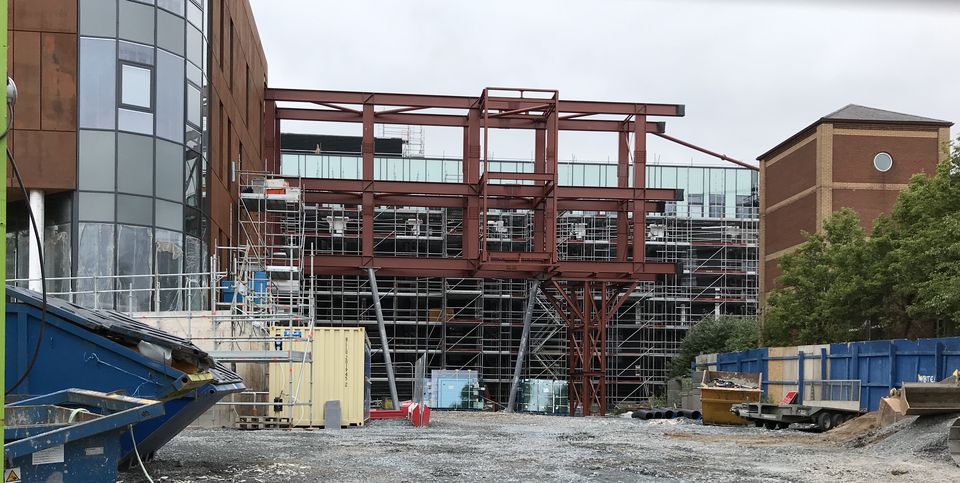Replacing all water pipes in Belfast’s new maternity hospital could cost up to £9 million and take up to four years, a committee has been told.
That would be the “worst-case scenario” for the beleaguered hospital, which is already almost 10 years behind schedule.
However, Belfast Health and Social Care Trust said recent sampling for bacteria at the site has suggested a complete refit will not be required.
The hospital, at the Royal Victoria site, has faced numerous delays, but it was hoped it would finally open next year.
However, after the trust took possession of the new building in March, testing of its water systems showed high levels of the bacteria Pseudomonas aeruginosa (PsA), leading the trust to say the project was facing a significant new delay.
The hospital building site in Belfast (Niall Carson/PA)
Another problem around the medical gas pipework was later identified that would cost approximately £50,000 to rectify.
A Northern Ireland Audit Office report earlier this year said the unit was originally expected to be completed by the end of 2015.
On Thursday, the Assembly’s health committee convened to discuss the problems at the hospital.
Maureen Edwards, interim chief executive of the trust, brought interim findings of an independent review to the committee.
She described the review as “forensic”, adding that it had taken longer than expected due to challenges around the handling and volume of samples taken.
She said the latest sampling appeared to show a reduction in the overall amount of bacteria in the water systems
She said there had been a 50% reduction in the number of outlets having some level of pseudomonas detected, but cautioned these are incomplete results based on a single set of samples.
Previous results showed pseudomonas at 36% of outlets.
The trust is progressing recommendations around remediation works to reduce contamination and move towards the opening of the hospital.
These range from localised remediation works at a cost of between £750,000 and £1 million over three to four months all the way up to the “worst-case scenario” of full replacement of all domestic pipework.
The latter would be implemented if criteria around safe levels of bacteria were not met and would take up to four years at a cost of between £7 million and £9 million, Ms Edwards said.
However, she said the worst-case scenario of full replacement is not expected to be the preferred route based on the latest sampling.
A middle-ground option involves localised and minor repair works in “non-augmented care”, with a new domestic water system for neonatal and theatre areas.
Under each scenario, a further commissioning stage of five to six months would be needed to make the hospital ready for patients.
Ms Edwards told the committee the trust accepted the handover of the hospital from the contractor after samples fell under what she described as a high threshold of 2% failure rate.
However, increased levels of pseudomonas were reported in subsequent testing after the handover.
On the gas defects, she said the issue was identified at the time of handover.
She said it relates to 30 metres of pipework and could be “resolved promptly”.
“It is not a critical path issue and resolution of the 30 metres of gas pipework will not delay the opening of this building.”
